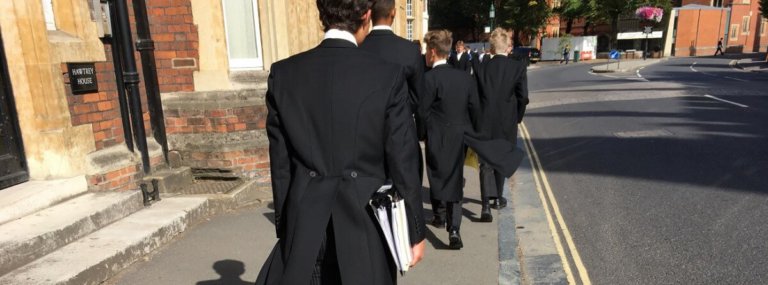
Last month, the UK’s Labour Party passed a motion to abolish private schools if it wins the next election. Delegates endorsed the proposal to remove their charitable status, integrate them into the state sector and denounced the private school system which propagates “the privilege of a tiny elite”.
Endowments, investments and properties will be redistributed to the state, and universities would be limited to admitting only seven percent of private school applicants, the same proportion they make up in the wider population.
The radical move is nothing short of controversial, sparking a fresh round of debate in the UK. Here are some key takeaways from the different camps:
1. Abolish
John McDonnell, the UK’s shadow chancellor, is a supporter of the motion, declaring that “private schools don’t need to exist” in an equal society. McDonnell isn’t the first to allude to private schools’ role in perpetuating social inequity in the UK. Only seven percent of British pupils are private school-educated, but they are over-represented in the upper echelons of government, business and law. Two-thirds of the UK’s current cabinet are private school graduates, including the Prime Minister himself, Boris Johnson.
Private schools segregate kids by their parents’ bank balances. They provide lifelong networks for the powerful and promote a toxic sense of social superiority.
Finland’s world class state education system shows what we can achieve. This is long overdue! https://t.co/gwJZTm0pns
— Owen Jones🌹 (@OwenJones84) September 23, 2019
In letters to The Guardian, readers are cautious of the effectiveness of Labour’s proposal but appear to agree it will make British society fairer. While it wouldn’t “directly improve the life chances of those left behind, it would take away the automatic life-privileging of those wealthy enough to attend them, thus creating a more level playing field”, wrote Michael Miller from Sheffield.
2. Reform
The recently launched Private School Policy Reform (PSPR) is a pro-reform thinktank and platform for comment and debate. The site aims to research, assess and discuss options for the reform of private schools in the UK, starting with a list of six options for political parties to throw their weight behind:
- Taxing private school fees to reduce demand for private schooling while raising revenue.
- Removing charitable status, which would remove reduction of local business tax they have to pay.
- Introduce a policy of contextual admissions to university to counterbalance the advantages of private educated students.
- Fair Access Scheme, where one-third (initially) of the new intake at all private primary and secondary schools will become free, state-school places. The schools will now become partly private, partly state schools.
- Phasing out private education altogether.
- Reform by offering mass bursaries and sponsorships to fill at least a third of places with children from low to middle income, non-affluent families.
3. Keep
Private school headteachers have criticised the move to abolish the private education system as one that would deny parents the option of choosing an alternative education path for their children.
Head of Eton hits back at Labour plans to abolish private schools | Education | The Guardian https://t.co/2e1dMHuTEW
— Eton College (@Eton_College) September 24, 2019
Fiona Boulton, Chair of the Headmasters’ and Headmistresses’ Conference (HMC), called the plan one “based on ignorance and the desire to damage”. Meanwhile, the Independent Schools Council said the Labour Party is putting politics “before the interests of children” and creating a distraction from the real problems in education, such as more funding for state schools and support for underperforming pupils.
While the headmaster of Eton College – the alma mater for 19 British Prime Ministers – admits that the education system is unequal, he described the move to abolish as one that would be “abolishing excellence”.
“I don’t think that by abolishing some of the best schools in the world, by confiscating and redistributing their assets, that we are going to improve the life chances of young people who have been left behind by the education system,” he said in an interview with The Guardian.
“More fundamentally than that, I don’t think it will work,” he continued. “I don’t think it will improve equality within the education system.”







